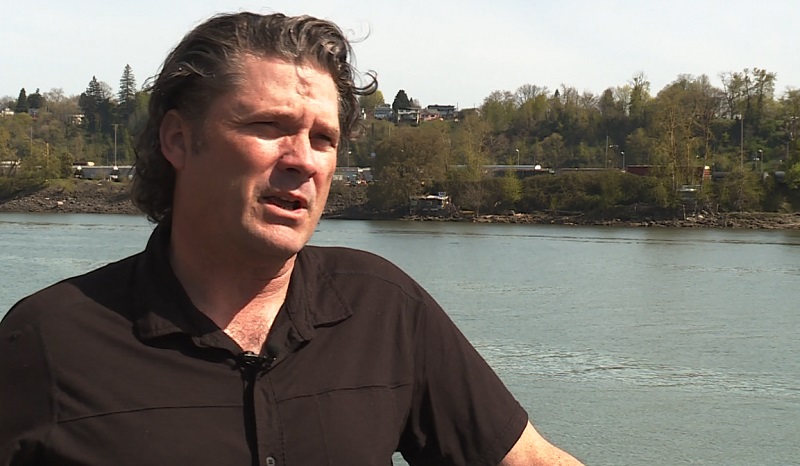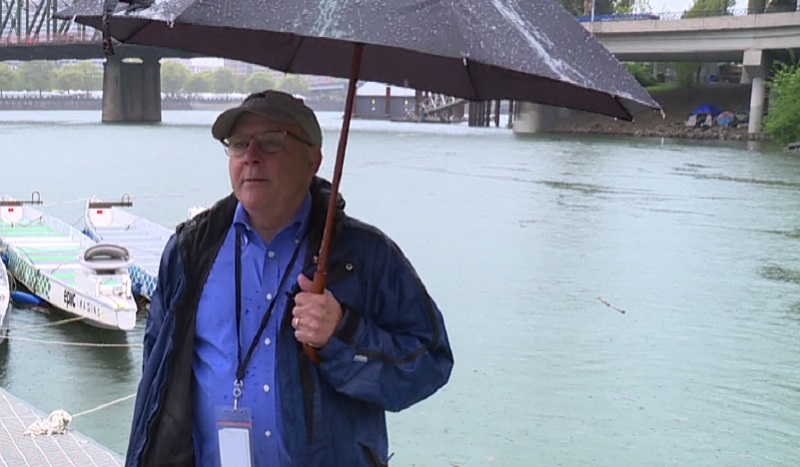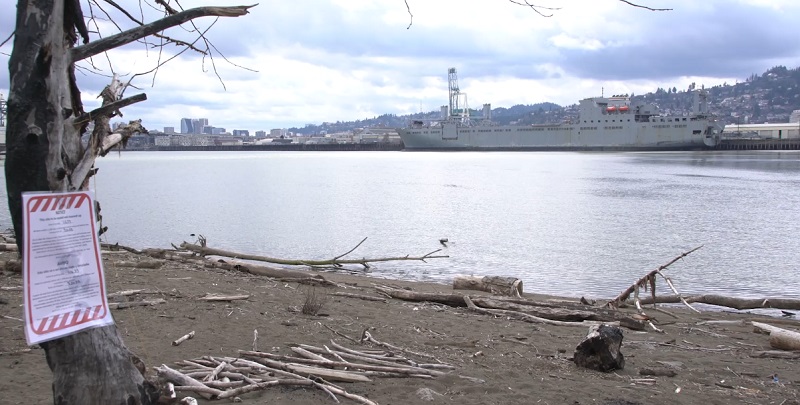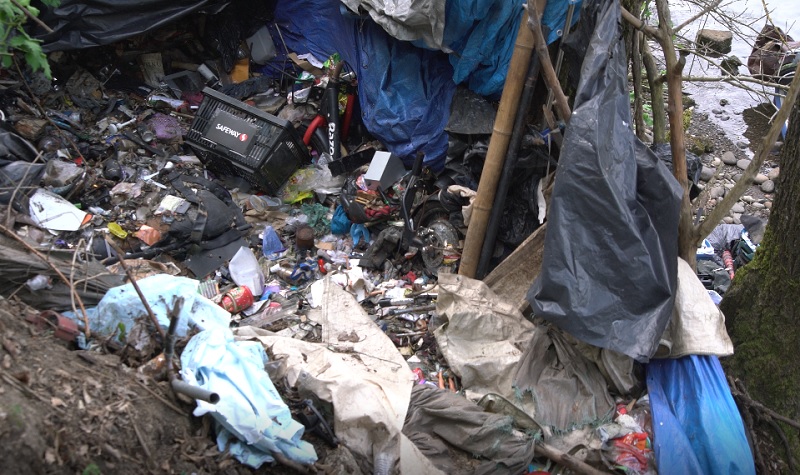PORTLAND, Ore. (KOIN) — In April, KOIN 6 News showed how people are living on the banks of the Willamette River, some in structures resembling beaver dams made of driftwood. Others built cabins with doors, windows, even solar panels. All are unregulated.
Now an environmental group dedicated to protecting the river says it is part of a larger pollution problem created by homeless encampments along the shore from Portland to Eugene and beyond. Willamette Riverkeeper believes more can be done to protect the water, while helping people living in the camps.
“Whether you are a city, a county, or one of the agencies related to the state of Oregon, nobody wants to take responsibility,” said Travis Williams, Executive Director for Willamette Riverkeeper. “We can deal with this social problem and deal with a real pollution problem at the same time.”
His organization is calling on the Oregon Department of Environmental Quality to step up to take on the trash.

“And every manner of wildlife, big and small has a chance to get tangled up in that. They have a chance to ingest that,” he told KOIN 6 news. “And we’re talking fish, we’re talking freshwater mussels, we’re talking avian species and everything in between. And that’s the picture we’re trying to help people understand, including the state of Oregon.”
In 2022, Willamette Riverkeeper petitioned the Oregon DEQ to use the Federal Cleanwater Act to establish thresholds for shoreline trash. Private and public property owners could be fined if garbage got above a certain threshold.
But Williams said the DEQ rejected the idea.
“That’s a definitely a concerning issue,” said Oregon DEQ Communications Manager Harry Esteve. “The whole issue of homeless encampments is really complex, and it’s a kind of a social and health issue. It’s not one that DEQ has authority over or really expertise in. Things that we have regulatory authority over, for instance, on a wastewater plant, we can say you’re emitting too much of a certain chemical or a certain temperature and you need to control that. We don’t have that kind of regulatory authority over people disposing of trash. That’s more of a local issue.”

In April 2023, Willamette Riverkeeper submitted a list to DEQ with data on the garbage volunteers pulled from the shores during 264 cleanups from 2017 – 2022, equaling an estimated 214 tons of debris. They hoped to inspire DEQ to rethink its role.
Esteve said he hasn’t seen that list. “We haven’t done our analysis of it yet, but we will, and then I can get back to you on that.”
Despite the Willamette Riverkeeper’s concerns of inaction, there are extensive government-led efforts to clean up the shore.
At an area called Lindbergh’s Beach — downriver from the cabins — a joint effort between the City of Portland, the Oregon Department of State Lands, the Oregon Marine Board, Metro and the Port of Portland pulled out 10 tons of debris.

But the “cleanup” doesn’t mean it’s totally cleaned up. Various individual items — a perfume bottle, a cigarette lighter, a battery, pieces of glass, shredded plastic — are easy to spot up and down the beach.
Complaint-driven inspections
Those who exist the riverside cabins live in a no man’s land. The City of Portland said that property belongs to Union Pacific Railroad. But railroad officials said “the boundary separating public land from private land is determined by natural fluctuations of the water, making it a legal gray area.”

In April, the City office in charge of homeless camp cleanups declined an interview request, saying the land belonged to the railroad.
Recently, KOIN 6 News asked the Portland Bureau of Development Services if their code enforcement officers have inspected the unpermitted structures. Their response: The process is complaint driven.
In an email, BDS spokesman Ken Ray said: “We have no records of enforcement cases on the parcel you identified. No complaints have been filed with the Bureau of Development Services.”
The DEQ’s Esteve understands trying to find out who is responsible for a piece of property “can be kind of frustrating. And we’re ready to work with Willamette Riverkeeper, with other environmental organizations, with the city, with local governments to address the issue.”
Travis Williams said Willamette Riverkeeper will keep working, but they’re now having to overcome clean-up fatigue. Their volunteers have had to return to the same areas to clean up the same spots. That becomes discouraging for the people who volunteer their time.

He said this trash problem goes well beyond Portland, beyond Eugene.
“We have to be compassionate about where people are in their lives and why they might be living in a cabin on the river or, in most cases, in a tent. But if there are alternatives, we need to help them get there,” Williams said.